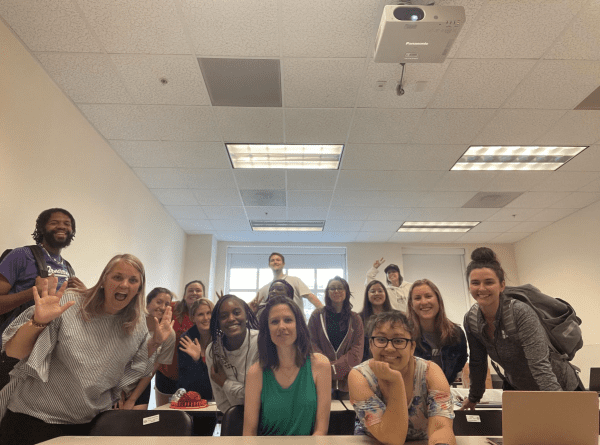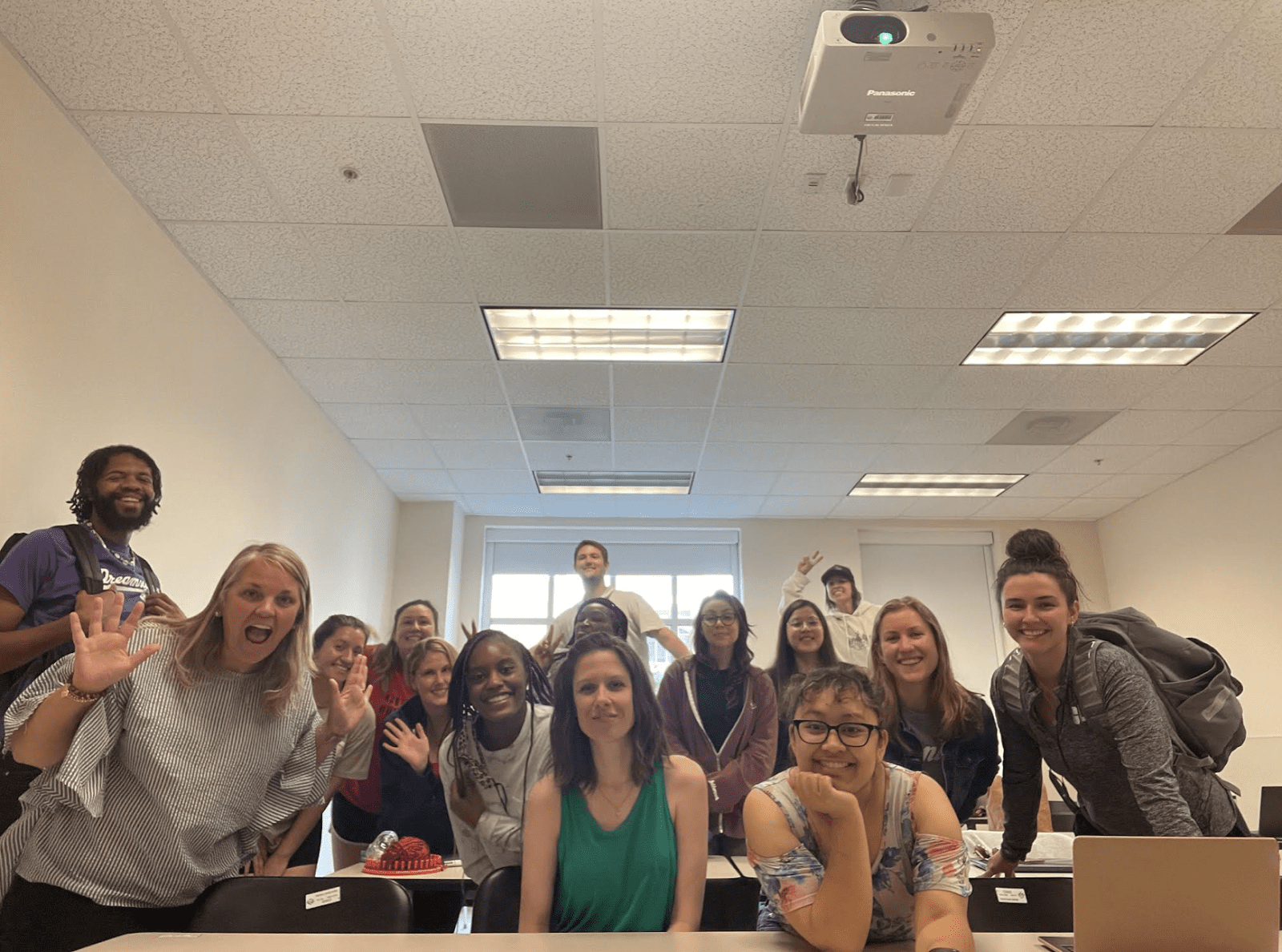Mother and Daughter Team Advocate and Teach Policy in School of Social Work

Rett Liles spent much of her legal career as a voice for children in the courtroom. Now she joins her mother at UNC Charlotte, bringing practical wisdom and legal experience as an adjunct professor in the School of Social Work.
Stepping Away from the Courtroom
Rett Liles spent most of her career defending the well-being of children in court. She earned her law degree at the Charleston School of Law and served on the Child Fatality Task Force (CFTF), a North Carolina legislative commission that studies the causes of child death, neglect and abuse.
As an attorney, she then made recommendations to the Governor and General Assembly on how to support at-risk children.
Before practicing law, she earned a degree in journalism from UNC Chapel Hill. She took a job as a reporter for Channel 9 news in Charlotte, where the story of a missing child convinced her to pursue law. When she interviewed the mother, she found out that the mother herself was a victim who had no legal resources or advocates.
“It was at that time I decided to go to law school, where I knew I wanted to do public service,” Liles said. “I didn’t go into law for the money, but to improve the lives of everyday people who have been historically marginalized.”
After a fruitful, though often emotionally demanding, career, she decided to step away from her legal focus to spend more time with her three young daughters, and now she brings her passion for policy change to UNC Charlotte.
This spring, she taught her first class, joining her mother Terri Matthews as an adjunct professor in the School of Social Work.
“I always knew that I was going to do something around teaching,” Liles said. “The professors I learned the most from and who had the most relevant and captivating stories had all worked extensively in the field. And, of course, I always had the bug from my mom.”
Her mother, Terri Matthews, is an adjunct professor in the School of Social Work. Matthews, like her daughter, spent most of her career advocating for children.
Matthews earned a master’s degree in social work from the University of South Carolina and worked for 25 years for Victim Assistance, a nonprofit agency whose offices were housed in the Charlotte-Mecklenburg Police Department. There she provided counseling, support services and treatment to felony crime victims, mostly children and teenagers affected by sexual and domestic violence.
Teaching Policy and Advocacy in Social Work
The class Liles will continue teaching each spring is called Policy and Advocacy. The themes are similar to those in a class her mother teaches and is an interdisciplinary course that features social work and public health students.

Liles, second from left, poses with the students she taught in the spring
“The class looks at big-systems issues,” Liles explained. “Criminal justice, mental health, public health, gun control, reproductive health, poverty and education. They all involve policy and intersect with both social workers and public health professionals.”
As a state attorney, she engaged with these realities on a daily basis. Part of her job was to find out how situations involving children and families became so dire in the first place, but by the time the cases reached Liles the situation was often far too advanced.
“You can have social workers, public health workers, attorneys and social services helping people out,” Liles said, “but it’s critical to remember the victims have had other compounding problems that we could have addressed earlier on in the timeline, like homelessness, hunger and systemic cycles of poverty.”
Her experience in this area is what made her class in the spring so interesting and led to lively discussions between the public health students who often fall into the “macro” camp, and social work students who often focus on individual clients.
Terri Matthews, who also taught an undergraduate macro social work class this spring, believes it’s a critical concern for any social worker.
“It’s the goal of most social work students to want to help individuals and families, but it’s also important they understand what’s going on in the organizations where they work, how they’re funded, and who’s in charge,” Matthews said. “They also need to understand what’s going on in their neighborhoods, communities, and local and state governments in order to practice at the highest level.”
Teaching to Effect Change
Terri Matthews, like her daughter, has spent her career on both individual client care and policy change. Throughout her career, she lectured extensively at Charlotte-area high schools on violence prevention.
She taught full-time at UNC Charlotte from 2005 to 2015 and continues on in her retirement as an adjunct professor. She says she is happy to continue teaching as long as students find her instruction and experiences valuable to their long-term goals of making a difference in the lives of their clients.
Her daughter Rett is excited to teach. And though she retired from the courtroom, Liles continues to do legal work, writing grants for the Food Lion Feeds Charitable Foundation, a nonprofit that gives money to food banks and organizations in critical need. She is now working to expand their outreach.
Rett Liles comes from a long line of public servants and educators. Her great grandmother was a teacher her whole adult life and a social and political activist. Her maternal grandparents were both college professors who were active in their community, and her paternal grandfather was a decorated veteran and Purple Heart recipient. Her mother and father have been active community volunteers in their church and with several agencies in 46 years of living in Charlotte.
Now Liles hopes to establish a role at UNC Charlotte that would allow her to share her years of practical wisdom and legal experience with students across a variety of disciplines.
“Changing policy is hard,” Liles explained. “All big changes are constituted by smaller, incremental changes, and teaching is one of the most powerful avenues of change. That’s what I hope to do as a teacher, and working with my mom as a team in this effort has been absolutely amazing.”